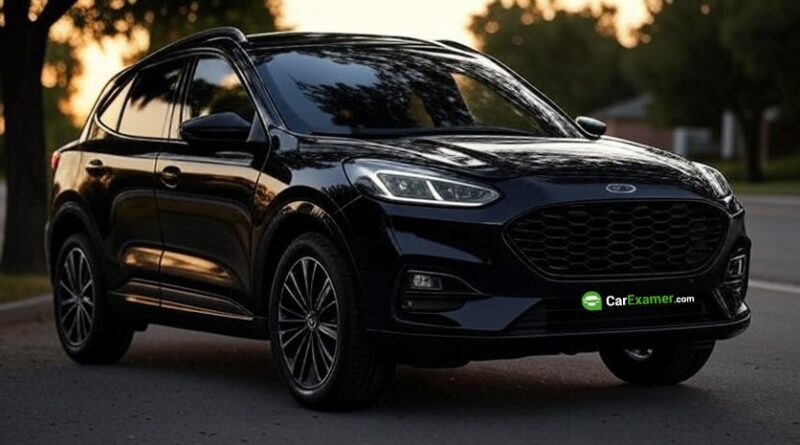Ford Kuga Problems What To Know Before Buying
The Ford Kuga is a popular SUV in the UK, appreciated for its space, practicality, and wide range of engine options – including petrol, diesel, and plug-in hybrid. However, like any modern vehicle, it has known reliability issues. Whether you’re a current owner or considering a used Kuga, knowing the most common Ford Kuga problems can help you avoid costly repairs and make informed decisions.
1. Plug-in Hybrid (PHEV) Battery Problems
The Ford Kuga PHEV models (from 2020 onwards) have experienced significant issues, including:
- Battery overheating risks
- Fire hazard recalls
- Charging faults or battery management errors
These problems led to global recalls and temporary suspension of sales. If you’re buying a PHEV, verify recall work has been completed and confirm battery health through a professional inspection.
2. DPF Blockage in Diesel Models
Diesel Kugas, particularly those with the 2.0 TDCi engine, are prone to Diesel Particulate Filter (DPF) problems when used for short, stop-start journeys. Common signs include:
- Loss of engine power
- Engine management light
- Higher fuel consumption
Frequent motorway driving helps prevent DPF blockage. If left untreated, repairs can be expensive.
3. Powershift Gearbox Faults
Kuga models with Powershift automatic transmissions are known for:
- Delayed or jerky gear changes
- Gearbox warning lights
- Clutch slip or transmission overheating
Regular gearbox oil and filter changes (every 35,000–40,000 miles) are critical but often neglected. Be cautious with high-mileage automatics without documented maintenance.
4. SYNC Infotainment Issues
Ford’s SYNC 2 and SYNC 3 systems have several known bugs:
- Bluetooth connection failures
- Touchscreen freezing or random restarts
- Voice control not responding
Many of these can be fixed with a software update, but hardware replacement may be needed for persistent issues.
5. Suspension and Steering Wear
Some Kuga models develop knocking sounds and poor ride comfort due to:
- Worn drop links, bushes, or control arms
- Leaking shock absorbers
- Steering column play
These are common on higher-mileage vehicles and should be inspected before purchase.
6. Electrical System Faults
Electrical issues are common in both diesel and petrol variants, including:
- Failing sensors triggering warning lights
- Faulty parking sensors
- Window or door lock failures
- Battery drain when left parked
These faults are often caused by poor grounding, moisture intrusion, or ageing control modules.
7. Turbocharger Problems in Diesel Models
The 2.0 TDCi engine, while powerful and economical, can suffer from:
- Turbo whine or failure
- Sudden loss of boost
- Smoke from the exhaust
Oil starvation due to blocked feed lines is the main cause. Regular oil changes with high-quality oil are essential to avoid damage.
8. Interior Trim and Build Quality
Interior build quality is generally solid, but some owners report:
- Rattles in dashboard or door trims
- Easily scratched plastics
- Malfunctioning climate control knobs or buttons
These are minor complaints, but they can affect long-term satisfaction.
Is the Ford Kuga a Good Buy?
Yes. If properly maintained. The Ford Kuga is a capable and comfortable SUV that delivers good performance, fuel economy, and family-friendly space. But certain models – particularly early PHEVs and older diesels – can come with hidden issues.
Key things to check before buying:
- Full service history
- Transmission and turbo maintenance
- Completion of any manufacturer recalls
Use a Professional Vehicle Inspection to Be Sure
Before buying a used Kuga, get a full vehicle inspection through Carexamer. Their nationwide mobile inspections include:
- Over 300+ checks
- Diagnostic scanning
- Suspension, gearbox, turbo, and electrical system tests
- Transparent pricing and instant online booking
An inspection offers peace of mind and protects against hidden faults.
Final Thoughts
The Ford Kuga is a solid and well-rounded SUV – but it’s essential to be aware of recurring issues, especially with PHEVs, diesels, and automatic gearboxes. DPF blockages, transmission faults, and infotainment glitches can be costly if missed.
If you’re buying second-hand:
- Test drive thoroughly
- Inspect for warning lights, fluid leaks, and noises
- Always request a detailed inspection before finalising your decision

